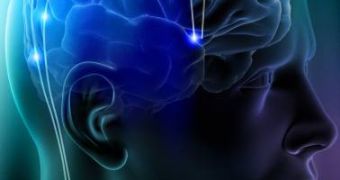A team of University of Pennsylvania scientists now say that deep brain stimulation is likely to keep people from binge eating and might therefore prove an efficient tool in terms of preventing and even treating obesity.
The news that deep brain stimulation might yield significant health benefits to those who are in the habit of binge eating comes shortly after one other study has shown that magnetic brain stimulation is bound to make it easier for people to quit smoking.
Study senior author Tracy L. Bale explains that, more often than not, the practice of binge eating is a fairly common behavior amongst obese people.
The researcher also says that, for the time being at least, curbing one's desire to binge eat is a fairly difficult thing to do.
With the help of deep brain stimulation targeting a specific area of the brain, Tracy L. Bale and her fellow researchers tricked several obese mice into reducing their caloric intake.
As was to be expected, the mice eventually lost weight.
The brain area targeted during this series of experiments is known as the nucleus accumbens. The researchers explain that this area of the brain is known to influence addictive behaviors.
“Based on this research, DBS may provide therapeutic relief to binge eating, a behavior commonly seen in obese humans, and frequently unresponsive to other approaches,” Tracy L. Bale reportedly commented on the findings of this investigation.
“These results are our best evidence yet that targeting the nucleus accumbens with DBS may be able to modify specific feeding behaviors linked to body weight changes and obesity,” the researcher further detailed.
Presently, Tracy L. Bale and her colleagues hope that the data they collected while carrying out these experiments on animals will allow them to set the basis for clinical trials involving human patients.
The researchers hope that their work will eventually translate into DBS's becoming a means of treating obesity.
A detailed account of this investigation was published in the Journal of Neuroscience.

 14 DAY TRIAL //
14 DAY TRIAL //